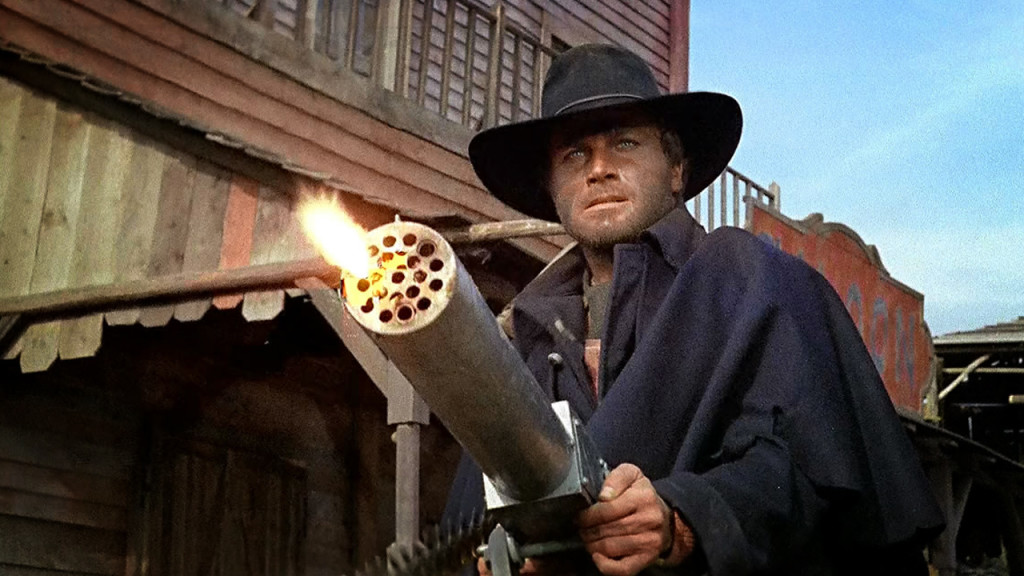
Franco Nero stars in the 1966 western that partly inspired Quentin Tarantino's Django Unchained.
Now available for screening on iTunes and Vudu.com: Django, director Sergio Corbucci’s cult-favorite 1966 action drama, which instantly established the title character as a Spaghetti Western icon — and, decades later, partly inspired Quentin Tarantino’s Django Unchained.
Franco Nero stars as Django, a former Union soldier who’s still wearing his military uniform — and inexplicably dragging a coffin — when the audience first sees him wandering through a wilderness somewhere near the Mexican border. (The movie, like many other Spaghetti Westerns of the period, was shot on locations in Spain and Italy.) During the opening minutes, he impressively demonstrates his gunslinging prowess by dispatching several vicious thugs who are horsewhipping a prostitute because she dared to consort with a Mexican bandit. (“It’s not nice to harm women,” he tell them before he shoots them.) The body count mounts when Django reveals what he has stashed in that coffin: A Gatling gun that allows him to even the odds in his favor when he tangles with an army of outlaws led by the rabidly racist Major Jackson (Eduardo Fajardo).
The plot of Django — which bears more than a passing resemblance to that of Sergio Leone’s A Fistful of Dollars, the 1964 classic credited for kicking off the Spaghetti Western craze — has something to do with Django’s temporary alliance with bandits to steal gold from an army fort, and something else to do with Major Jackson’s campaign to eradicate Mexicans with the help of flunkies wearing red hoods. (In Django Unchained, it should be noted, the flunkies prefer white hoods.) But, really, the scenario is just an excuse to have Django be a subzero-cool badass while killing as many bad guys as possible — unlike Major Jackson, he is an equal-opportunity executioner — even after his hands are smashed and his trigger-fingers immobilized by the bandits.














